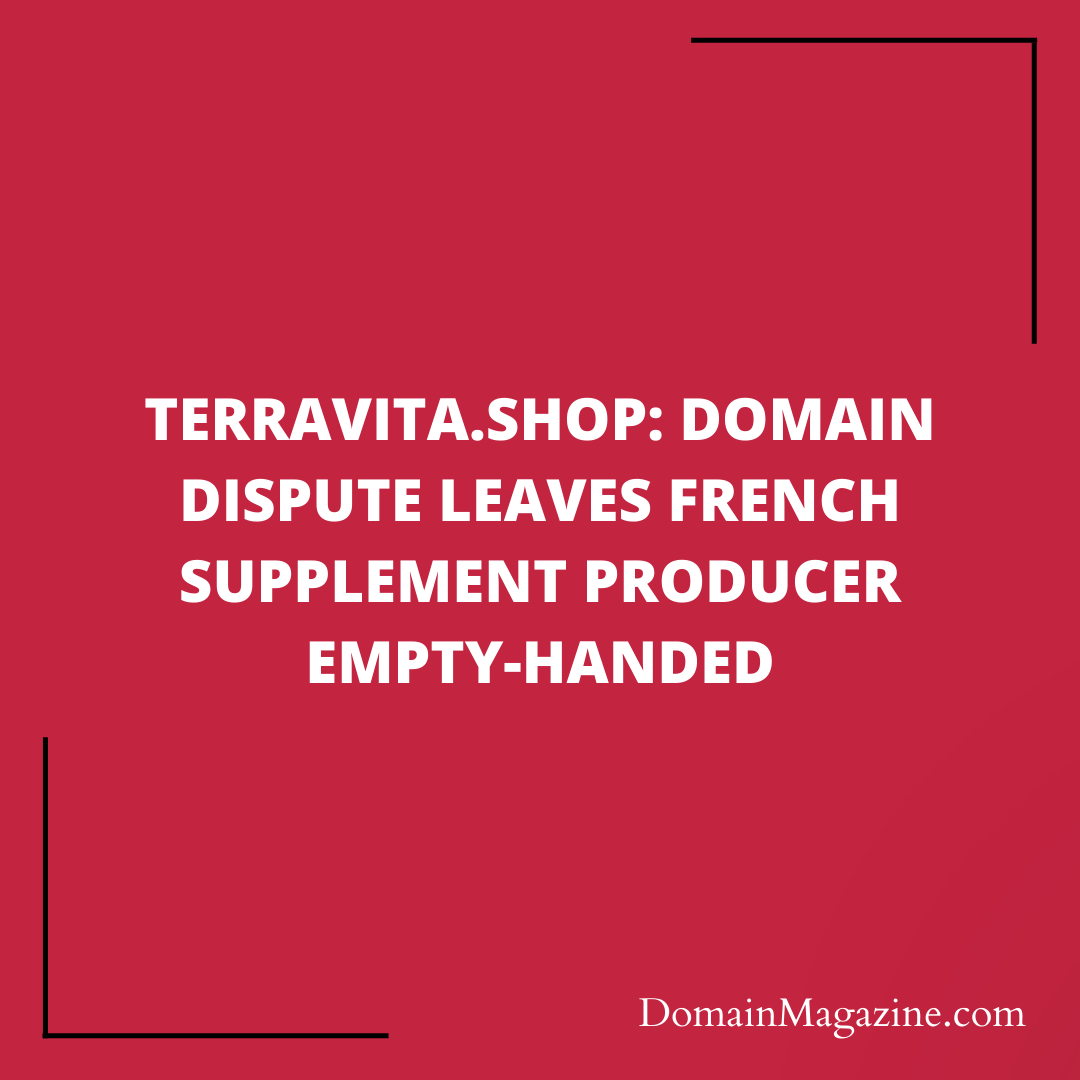In a recent online domain dispute case, a French producer of food supplements faced an uphill battle to claim ownership of the domain Terravita.shop. The story unfolds as the Complainant, known for selling products under the TERRAVITA and TERRANATURA brands for over a decade, sought to protect its brand’s online presence. However, the outcome took an unexpected turn as the panelist made a crucial decision that left the Complainant empty-handed.

Background:
The Complainant, a prominent French food supplement producer, had been using the TERRAVITA and TERRANATURA brands for fifteen years. They owned trademark registrations for TERRAVITA, including an International Trade Mark Registration that covered Switzerland. Trouble arose when a new domain, Terravita.shop, was registered on June 20, 2023. This domain, currently resolving to a parking page on Shopify, caught the Complainant’s attention. They alleged that the Respondent had registered the domain intentionally to divert traffic from their website, a practice known as “passive holding.”
Key Facts:
- The Complainant had been selling products under the TERRAVITA and TERRANATURA brands for 15 years.
- They held trademark registrations for TERRAVITA, including one in Switzerland.
- The disputed domain, Terravita.shop, was registered in June 2023 and currently points to a parking page on Shopify.
- The Complainant claimed that the Respondent registered the domain to divert internet users.
- The Respondent did not provide a response to the complaint.
Panel’s Decision:
The critical point of contention in this case was the use of the disputed domain. Since Terravita.shop pointed to a generic parking page on Shopify and had not been actively used, the Complainant invoked the “passive holding” doctrine to prove bad faith. However, the panelist evaluated the case meticulously.
- The panel found that the domain had not been actively used, favoring the Complainant’s argument.
- However, the panel also noted that there were numerous third parties using “Terravita” as a trademark, even in Switzerland.
- A broader internet search showed that the Complainant did not prominently feature in search results for “terravita.”
- Multiple trademark registrations incorporating “terravita” belonged to unrelated parties.
- In light of these findings, the panel was not convinced that the Respondent had targeted the Complainant specifically. The fact that the domain pointed to a generic Shopify parking page without any evidence of targeting further weakened the Complainant’s case. Consequently, the panel concluded that there was insufficient evidence to prove bad faith targeting by the Respondent.
Conclusion:
In a surprising turn of events, the panel’s decision denied the Complainant’s claims, leaving them without ownership of the disputed domain Terravita.shop. This case highlights the complexity of domain disputes and serves as a reminder that proving bad faith can be challenging, even in cases where a domain appears inactive. Businesses must be vigilant in protecting their online presence, but they also need substantial evidence to back their claims in disputes like this one. The outcome underscores the importance of thorough research and documentation in domain dispute cases.
Read the full case here: https://www.wipo.int/amc/en/domains/decisions/pdf/2023/d2023-3130.pdf


Join the Discussion